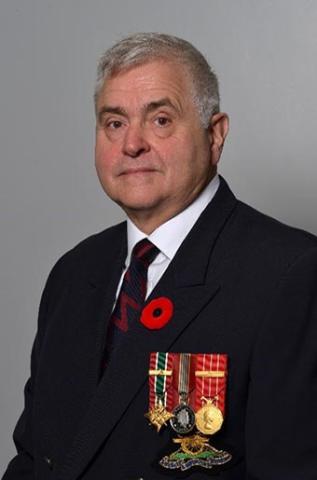
Joined
1980-1985
1997 (rejoined)
Postings
- Valcartier, Québec
- Montréal, Québec
- Kingston, Ontario
Deployments
- 1998 Operation Recuperation
- 2008 Germany
- 2010, 2011 Afghanistan
Deploying to the ice storm
I was with the 2nd Field Artillery Regiment in Montréal and I had just rejoined the army. I was a Lieutenant at the time. It was the first time the Reserves had been mobilized since the Second World War. I heard on the radio that reservists had to report to their units! I remember in those first few days we saw total darkness, then exploding blue transformers. It was surreal! I served three weeks during the operation. Upon arrival, our unit’s primary responsibility was street patrol and clearing branches so emergency vehicles could get through.
Today, it’s a lot more common to call in the military when there are floods and forest fires. The ice storm, however, was probably the Army’s first large-scale operation here to help Canadians.
The “ice triangle”
A couple of days later, I was assigned to help the Princess Patricia’s Canadian Light Infantry troops who’d just arrived from Edmonton. We went to the “ice triangle,” an area of the Eastern Townships, 75 kilometers from Montréal, that had received the most freezing rain. We arrived in Sainte-Blaise where they had set up the community centre as an emergency location to cook for people. I started to connect with the mayor and his team to fully understand the needs of the community.
Becoming part of the community
Normally, we spent most of the time on our bases training and in general, nobody really knew what the army did. But when they saw how we did things with our methodology, our way of thinking and our teamwork, we were able to integrate ourselves with them. We were all there to help everyone in the community.
Together, the Sûreté du Québec, RCMP and Canadian Armed Forces integrated into the population. The Army has unparalleled skills in short, medium and long-term strategy, especially in organizing and preparing logistics. We also built relationships. Afterwards, I became head of interagency relations at the headquarters in Montréal. Later, this concept of liaising with agencies and working with civil authorities was created.
Close to home
It was always in the back of my mind that just a few kilometres away, my family didn’t have electricity either. I talked to them every night. When people saw army trucks in the neighborhood, they realized it was a big deal.
A big surprise!
We went door-to-door making sure everyone was alright. In one of the homes, the oven was still warm but nobody was answering. We called in the Sûreté du Québec. Something was up. We went in with them and discovered quite a bit of pot to seize!
A rewarding experience
When I later saw that the community was very positive about our presence and our abilities, I was really pleased. We were all very proud. For once, we were helping Canadians. It was happening in our own backyard and despite this great inconvenience for the population, especially the vulnerable, we were there.
With great pride, diligence and diplomacy, Gratton served in uniform at home and overseas. Discover more stories.